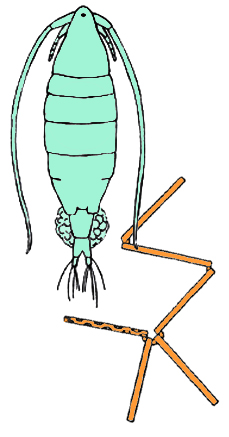Plankton is a lot like high school. Individuals find themselves tossed into a motley group of assorted creatures headed in the same direction. (Stay with me here.) They might not have anything much in common – they might be different sizes, eat different things, and perform vastly different roles in the ecosystem. Sometimes they are diverse; sometimes they are homogeneous (like during an algal bloom). Yet there they are, bound together in the Plankton Class of 2013.
Experts talk about this slippery set using terms such as “guild”, “ecological group” and “functional type”. These groupings are not necessarily related to taxonomic or physiological closeness, but might throw a lasso around a particular activity the plankton are involved in, such as the cycling of carbon and nutrients in the ocean.
Just like your friends from high school, individual plankton might veer off to become wildly different in their adult forms. They might cycle for generations in local waters while others are drawn off into distant carbon sinks. If only they had some form of Facebook to keep in touch…

